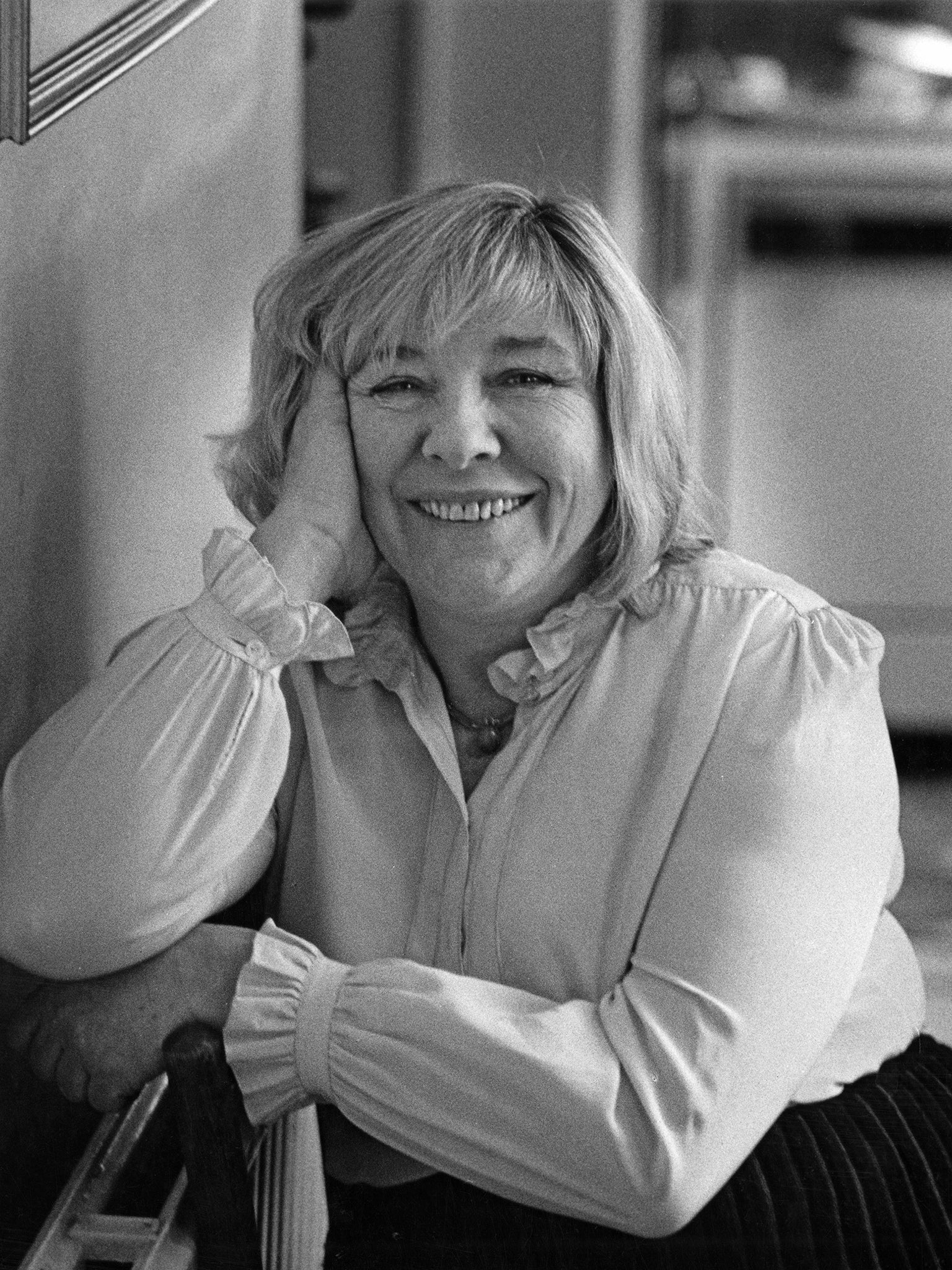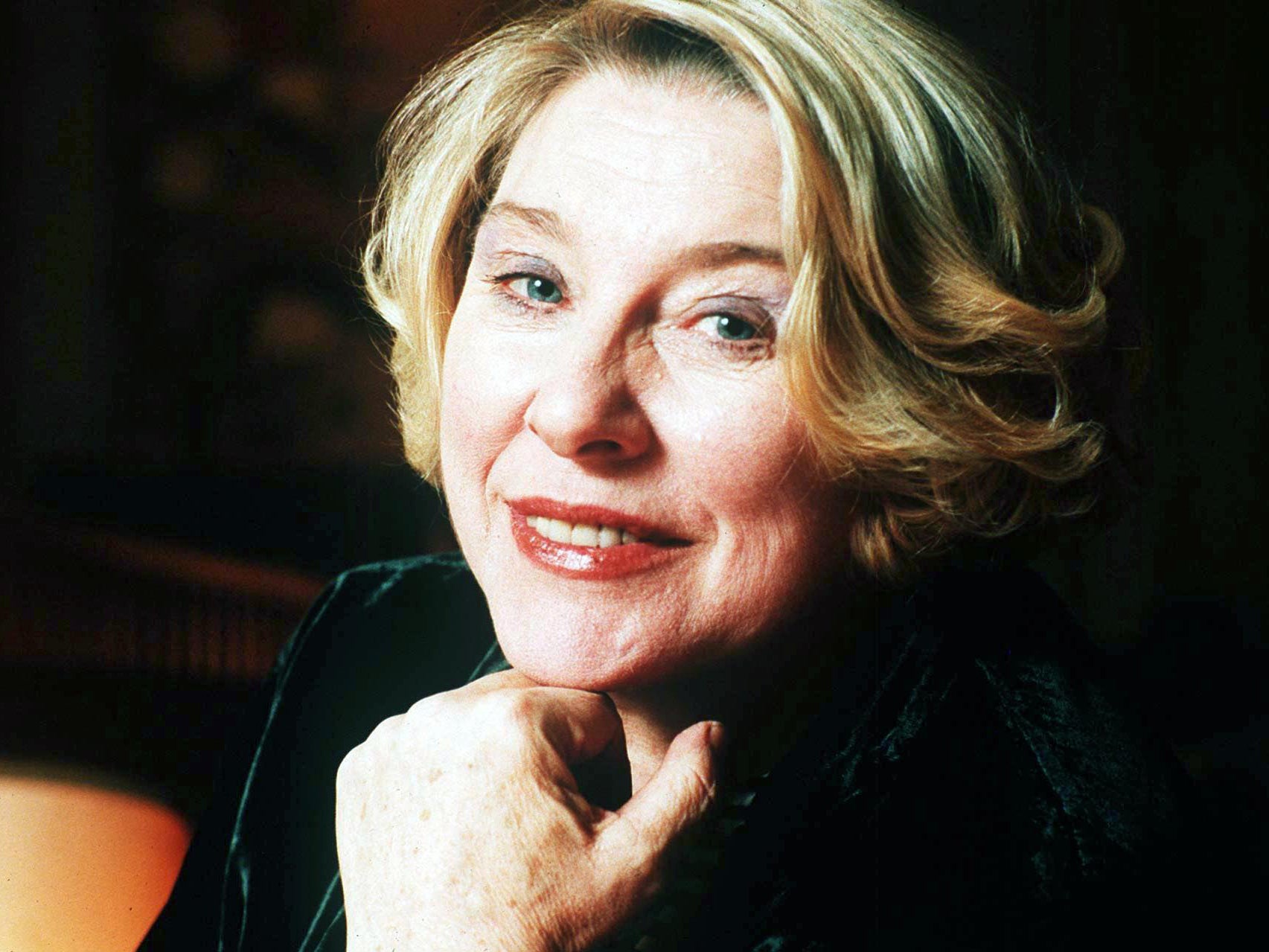
“If I am a prolific writer,” Fay Weldon once said, “and turn my hand, with what seems to some indecent haste, from novels to screenplays to stage and radio plays, it is because there is so much to be said, so few of us to say it, and time runs out.”
Weldon’s pronouncements often got mixed reactions in a writing career that spanned 50 years. Some enjoyed her mix of frivolity and serious intent; others found her views capricious and inconsistent. However, she saw “no real virtue in consistency. People are contradictory”. She also pointed out at the end of one opinionated interview: “These are not considered views; just today’s views.”
The author was born Franklin Birkinshaw in Barnt Green, Birmingham on 22 September 1931, her first name came about because her mother Margaret, a romantic novelist, was convinced she was going to have a son. (She already had a daughter, Jane, a year older.)
Weldon had been conceived in Napier, New Zealand where her father, Frank Birkinshaw, had emigrated to practice as a doctor. The family were separated during the great Napier earthquake of 1931, which saw Weldon’s father abandon his family for three months and her mother return to England.
Margaret and her daughters returned to New Zealand but the marriage did not last long. According to Weldon, her father was a philanderer but when Margaret was unfaithful once to bring him to his senses he divorced her.
Her mother struggled to keep them. She took menial jobs but also wrote romantic novels to pay the bills. (She had already written a serious novel, Via Panama). Writing was in the family. Weldon’s maternal grandfather was the detective novelist, Edgar Jepson; her uncle also became a crime author.
In 1945 Weldon’s mother received a small inheritance and brought the family back to England. They arrived in England on Weldon’s 15th birthday. She never saw her father again: he died of a stroke in 1947.
Weldon went to South Hampstead High School, then to St Andrews University, Scotland, on a scholarship to study psychology and economics. Her sister married an artist and became pregnant but left her husband after eight weeks. Moving to London after receiving her degree Weldon worked as a hospital orderly, a waiter, then on the Polish desk at the Foreign Office where Winston Churchill would assess her memos as “VG”.
At night she and her best friend went with visiting business executives on double dates that sometimes turned into foursomes in laybys. She later said that such “intimate congress with another human being is very reassuring. It makes you feel alive and worthy of their attention. The debasement is part of it”.

She became pregnant with her son, Nicholas, when she was 22. The father, a busker and doorman, offered to marry her and make a living as a plumber in Luton. She refused but took his name by deed poll.
When her son was born Weldon, her mother, her newly pregnant sister and another pregnant woman moved to Saffron Walden to open a teahouse. They abandoned the project when Weldon couldn’t deal with the sobbing ghosts she claimed inhabited the building.
In 1957, she married headmaster Ronald Bateman, 25 years her senior. She said in her autobiography Auto da Fay (2002) that he needed a wife for his CV but didn’t want sex with her. He encouraged her to take lovers and, according to her, wanted to be her pimp.
He also encouraged her to work as a hostess in a Soho clip joint. Weldon said she actually enjoyed being a hostess: “It was delinquent, you see. It was fun in the way parties are fun actually, socially it was easier because there were rules.”
She wrote about this period in the third person to distance herself from it. Even so she also noted: “Poor Ronald Bateman. [I] was a heartless, practical monster.”
She regarded the marriage as a commercial exchange: “You either supported your child or they took it away and put it in an orphanage. So the customary thing was to marry someone for a roof over your head and you would provide services of a domestic and sexual nature. It was not so surprising or terrible a thing to do.”
She left Bateman after two years and got work as a journalist before moving into a successful career in advertising copywriting. She did not coin the slogan “Go to work on an egg” nor “unzip a banana” but was head of the department that did. She may have provided a slogan for vodka that was too direct: “Vodka gets you drunk quicker”.
Although successful at work, she referred to herself in her twenties as a “lost girl” moving through a string of unsatisfactory affairs. In 1960, age 29, she met artist and antique dealer, Ron Weldon. They married and had their first son, Daniel, in 1963. While she was pregnant she wrote her first TV play, A Catching Complaint, posting it on the way to the hospital to give birth. She wrote it in longhand because her husband didn’t like the sound of typing.
The Weldons had two more sons. The couple also attended regular therapy sessions. She said: “We went to see our analysts twice a week so really there was no need to speak to each other.”

Her sister Jane had mental health problems through the Sixties and Weldon often looked after her children too. Jane died of cancer in 1969 at the age of 39. Weldon said: “I felt total helplessness in the face of it.”
She was much in demand over the next 20 years as a TV writer. She won an award for the pilot for Upstairs, Downstairs (1971), adapted Pride and Prejudice for the BBC (1980) and, in the same year, scripted Life for Christine, a true story about a 15-year-old sent to prison for life. She also adapted Olivia Manning’s The Balkan Trilogy into an eight-part BBC series.
She published her first novel, The Fat Woman’s Joke, in 1967. Books that followed included Down Among the Women (1971), Female Friends (1975), and Praxis (1978), which was shortlisted for the Booker Prize. In these early novels she was critical of rivalrous women who focused on their selfish needs rather than solidarity with other women.
Her style was direct but that was because “you say what you want to say in the shortest time available so you can all go home”.
In the Eighties, she explored how science and the physical changes it enabled could affect women’s lives in novels such as Puffball (1980), The Life and Loves of a She-Devil (1983) and The Cloning of Joanna May (1989).
Her marriage to Ron Weldon ended in 1994. He died of a heart attack on the day the divorce was finalised. She later married poet Nick Fox, who became her manager.
Wicked Women (1995) won the PEN/Macmillan Silver Pen Award. In 2001, she was criticised for making a deal with the jeweller Bulgari to product place the company name in a novel.
As time went on her pronouncements about men and women caused either bemusement or anger among feminists to such a degree that she said: “I do still call myself a feminist, but I’m not sure if they’d still have me.”
Possibly that was because she said women should not expect orgasms and should fake them if they didn’t have them; that they shouldn’t try to get men to pick up their socks or clean the loo; that “rape isn’t the worst thing that can happen to a woman if you’re safe, alive and unmarked after the event”.
Later she stated: “I sometimes take extreme positions because I want to be argued with.”
In 2000, she found religion and was confirmed in St Paul’s Cathedral. She was made a CBE in 2001. She moved to Dorset with Nick Fox in 2002.
Auto Da Fay was published the same year. “The writing was not in the least therapeutic,” she said. “All reliving does is scrape off scar tissue to reveal still bleeding wounds.”
She wrote over 30 novels and five collections of short stories. Her last novel, Habits of the House (2012), was the first of a projected historical trilogy called Love and Inheritance. It was seen by some as cashing in on the popularity of Downton Abbey.
Survivors include her son Nick; two sons from her second marriage; a stepdaughter; 12 grandchildren; and five great-grandchildren
Weldon joked that she saw herself “as someone who drops tiny crumbs of nourishment, in the form of comment and conversation, into the black enormous maw of the world’s discontent. I will never fill it up or shut it up; but it seems my duty, not to mention my pleasure, to attempt to do so, however ineptly. See me as Sisyphus, but having a good time.”
Fay Weldon, author, born 22 September 1931, died 4 January 2023







